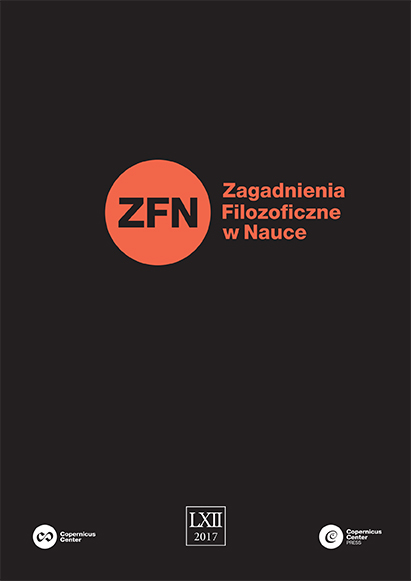
Panorama inna niż wszystkie
Book review of: Panorama współczesnej filozofii, Jacek Hołówka, Bogdan Dziobkowski (ed.), Wydawnictwo Naukowe PWN, Warszawa 2016, pp. 559.
More...We kindly inform you that, as long as the subject affiliation of our 300.000+ articles is in progress, you might get unsufficient or no results on your third level or second level search. In this case, please broaden your search criteria.

Book review of: Panorama współczesnej filozofii, Jacek Hołówka, Bogdan Dziobkowski (ed.), Wydawnictwo Naukowe PWN, Warszawa 2016, pp. 559.
More...
We argue the ontological character of information, along with energy and substance, as well as the structural-phenomenological unity at all scales and levels of reality. We use an interdisciplinary, inductive-deductive methodology, within the broad framework of the naturalistic conception. We start from the current reality, which is the impact of information technology, information networks, virtual reality and artificial intelligence, insisting on the role of information in the gnosiological approach. The preponderance of the logical reductionist positivism in the scientific research and the exaggerated focus on the particle and high energy-physics, made possible that the problem of information be almost completely eluded. Even Shannon and Weaver’s information theory considers information only from a quantitative viewpoint, and only through its relation to entropy and the second law of Thermodynamics. The development in the nonlinear dynamics field of chaos theory, fractal geometry and topology, and especially the spectacular development of information technology in the last two decades, needs a systematic analysis, including the defining of information and its importance in the structuring of reality along with energy and substance. From this perspective, all our concepts, starting from physical reality to psychological imaginary reality, can be coherently understood through the same paradigms, irrespective of whether we are talking about the conservation law, the Euclidean dimension, fractal or topological dimension or the multidimensional processing mechanism through syntactic, semantic, pragmatic and hermeneutic processing of the human and artificial language and knowledge in general. This informational paradigm assumes the existence of a functional, phenomenological, potential background represented by information and which can be mathematically modeled through topology. The semantic emergent logic (semantic emergent topology when applied to the reality structuring) can help to elucidate the old mind-brain dualism, with solving other paradoxes, particularly the theory of emergence.
More...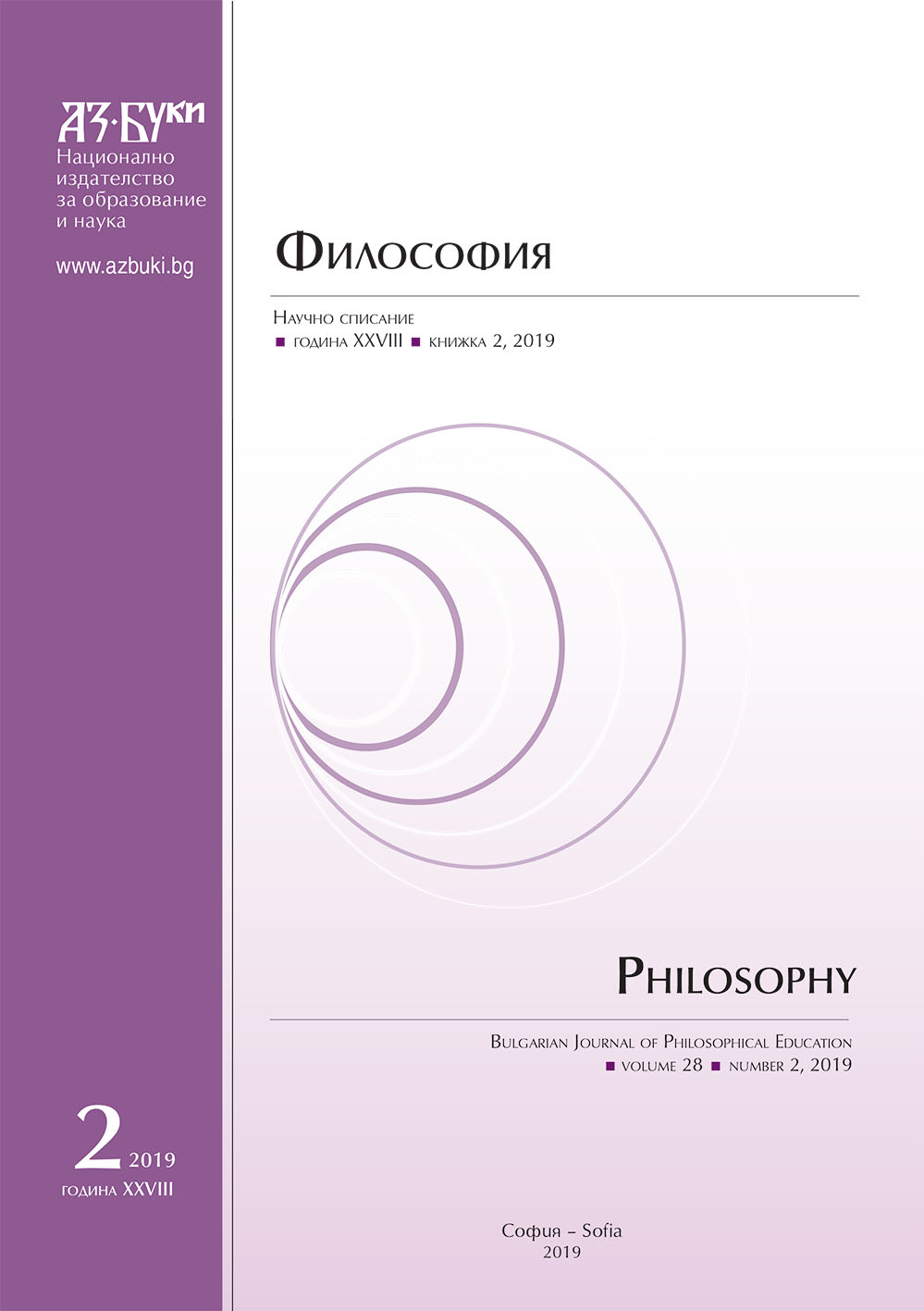
The aim of the current paper is to discuss medicine as a unity of scientific knowledge, acquired skills, and attitude based on moral responsibility. Following an analysis of the terms ‘science’ and ‘art’, it is suggested that neither of them singlehandedly satisfies the requirements of contemporary medicine and those of medical practitioners. As a science, its focus is rather on the illness itself than on the patient and their needs and preferences. As an art, it prioritises the patients and their individual needs but risks undermining the knowledge and experience of the medical professional. The most beneficial option is a symbiosis between science and art. A dialogue between them would increase the amount of trust in the medical profession as a combination of scientific knowledge and technical skills.
More...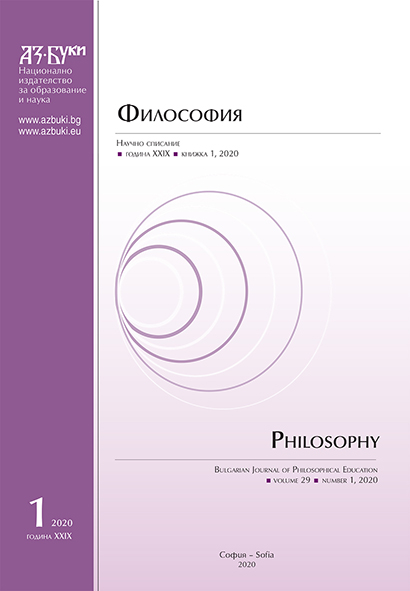
The aim of the paper is to show that the standard criticism directed to Kant that he allegedly accepted the uniqueness and objectivity of the three dimensional Euclidean geometry is irrelevant. Long before the birth of non-Euclidean geometries it occurred to Kant that extensions could exist with other properties and dimensions, which describe other possible worlds. And long before Hilary Putnam to explain the differentiation of the notion of straight line that obeys two types of laws – geometrical and physical, Kant has presented the possibility of this differentiation in his first Critique.
More...
The specialized understanding of natural kinds (NK) has a theoretical impact on the concept of emergent properties (EP) in particular, as well as on the understanding of the phenomenon of emergence as a whole. The problem is closely related to the tendencies towards their essentialization and theoretical demarcation. The theoretical tension is inevitably manifested in the attempts to consolidate the two concepts, which are generally considered in essentialist terms. A naturalistic, non-essentialist, approach could integrate them into a unified theoretical method, avoiding the problems of their traditional analysis. In the article, NK will be considered as reaction clusters, and EP as complexes of reaction clusters. Both will be directly related to the introduced concepts of reaction potential and stability. The relationship between these concepts will be defined and operationalized, thus explicating the result, considering the phenomenon of emergence as enhancing the reaction potential of a given structure or a complex system, which is in a proportional relation to its net stability.
More...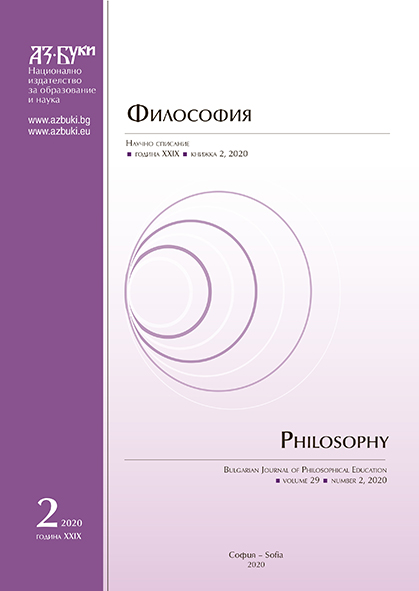
The aim of the present paper is to present the ontology of mathematical objects using the Meinongianism. Exactly in this framework we can accept abstract objects as non-existing, which are an object of knowledge, because they bear properties. We can apply these facts on mathematical objects, which are а type of abstract objects. So we can talk about non-existing math objects instead of their existence. I will use the dilemma of Benacerraf to prove the consequences of this acceptance of math objects as existing. But there is one deficiency of them being non-existing objects. First I will review the approach in the ontology and in the abstract objects. The next step will be to apply Maiong`s method to ontology of math objects and to demonstrate its strengths and weaknesses. And accordingly to the results, how far can we use this decision of the problem of abstract objects and special to math objects.
More...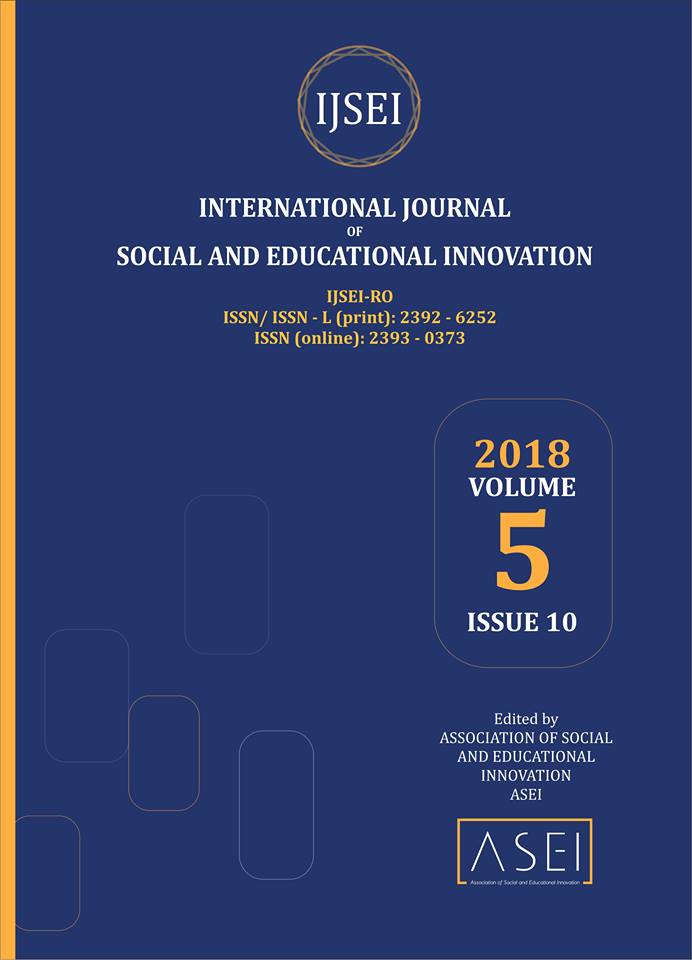
The article aims to explore the social distance of high-school students towards certain vulnerable categories (people with disabilities, those of different religions, those without income, foreigners, refugees, Romani, people infected with HIV, homosexuals), as well as identifying the manner in which these social categories are discriminated against at school and in other public places. In the context of the current study, social distance is expressed through the level of acceptance by the respondents of persons from the aforementioned categories, as neighbours, classmates and friends. Our study shows the students' reluctance to co-exist with certain categories of vulnerable persons by stigmatizing and using social exclusion (homosexuals, Romani, people infected with HIV, immigrants). These aspects draw attention to the need to fight against ethnocentric, xenophobic or homophobic attitudes in school. At the same time, the study shows that the manifestation of intolerant attitudes coincides in many cases with the posture of victim of discriminatory manifestations.
More...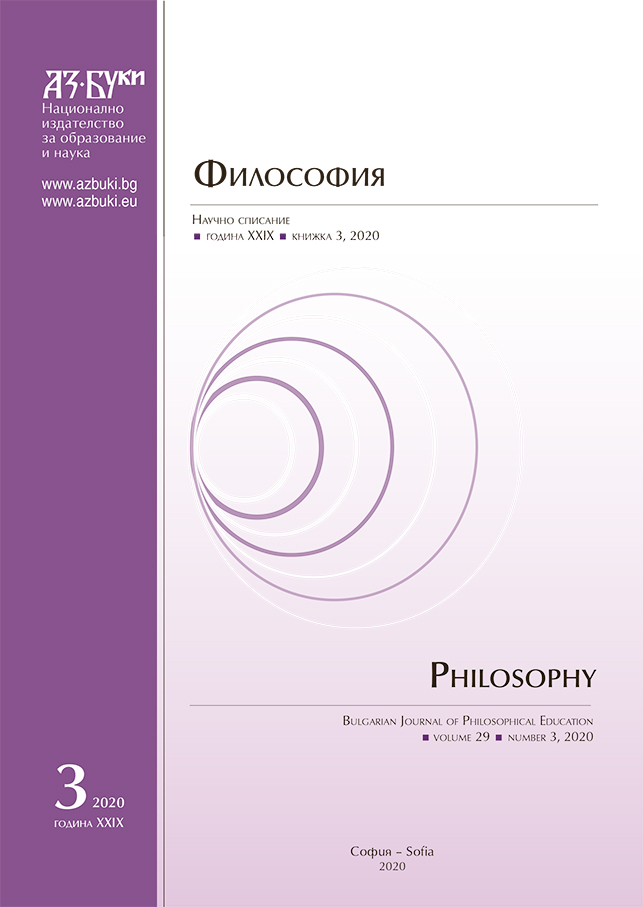
The article shows that Ludwig Wittgenstein used mostly pragmatic analysis to study the problem of knowledge in the later period. Without giving clear definitions of epistemological concepts, he argued that our interpretations of knowledge depend on the context of language-games, ideas of truth, certainty and justification, as well as the level of education and culture that form our way of life. It was found that the ideas of pragmatics were useful to Wittgenstein in order to more clearly define the nature of true knowledge, to outline the specifics of our refleсtions about certainty, as well as to analyze in detail all aspects of the justification. It is stated that his epistemological researches and discussions around them raised a wide range of not only linguistic but also psychological, cognitive and metaphysical issues, which made our understanding of the nature of knowledge much more comprehensive.
More...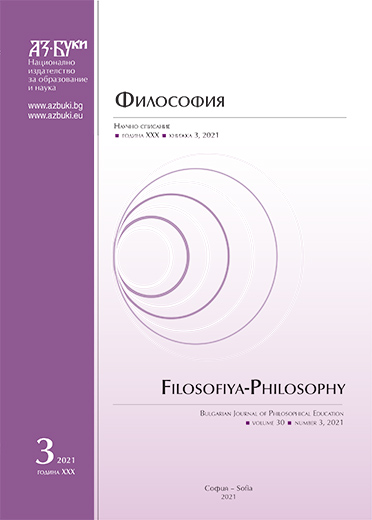
An extended approach to the comprehension of virtual reality is developed in the article. Virtual reality is understood not only as a logically possible or cybernetically constructed reality but also as continuous turbulence of potencies of the complex natural and social world we live in, the wandering of complex systems and organizations over a field of possibilities, such a realization of forms and structures in which many formations remain in latent, potential forms, and are in the permanent process of making and multiplying a spectrum of possibilities, lead to the growth of the evolutionary tree of paths of development. It is shown that such an understanding of virtual reality corresponds to concepts and notions developed in the modern science of complexity. The most significant concepts are considered, such as the nonlinearity of time, the relationship of space and time, the uncertainty of the past and the openness of the future, the choice and construction of the future at the moments of passing the bifurcation points. Some cultural and historical prototypes of these modern ideas of virtual reality are given. It is substantiated that the vision of virtual reality being developed today can play the role of a heuristic tool for understanding the functioning and stimulation of human creativity.
More...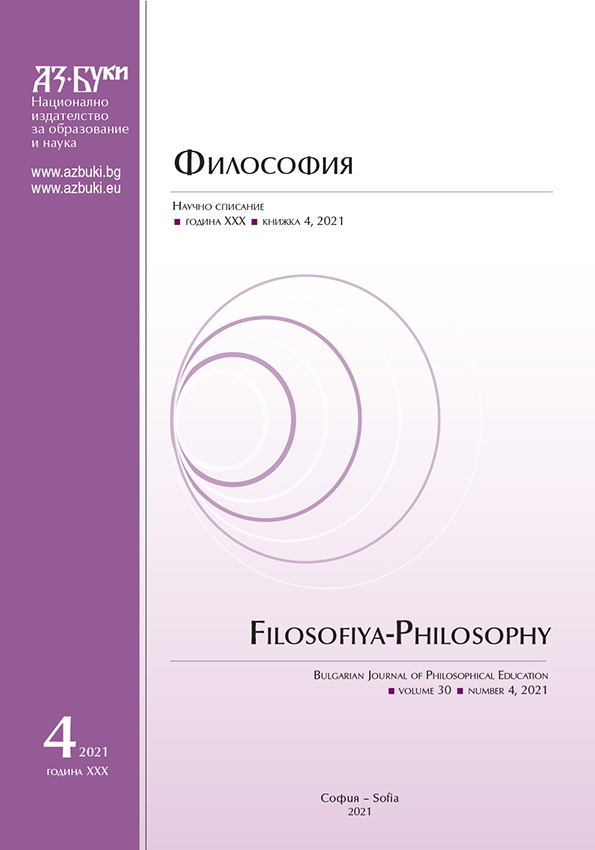
The article presents a critique of the commonly held assumption about the practical advantage of endurantism over perdurantism regarding the problem of future-directed self-concern of a person. The future-directed self-concern of a person crucially depends on the possibility of the right differentiation of diverging futures of distinct persons, therefore any theory of persistence that does not entail a special non-branching relation of a person to only their future self seems to be counterintuitive or unrealistic for practical purposes of personal persistence. I argue that this pragmatic rationale about future-directed self-concern is equally challenging for both theories of persistence. Moreover, I indicate, that both of these theories fall and stand on the practical feasibility of hidden ontological presuppositions about specific second-order notions of concerns of persons for their future.
More...
The main objective of this article is to demonstrate why despite the growing interest in justifying AI’s trustworthiness, one can argue for AI’s reliability. By analyzing why trustworthiness ethics in Nickel’s sense provides some well-grounded hints for rethinking the rational, affective and normative accounts of trust in respect to AI, I examine some concerns about the trustworthiness of Savulescu and Maslen’s model of moral AI as an adviser. Specifically, I tackle one of its exemplifications regarding Klincewicz’s hypothetical scenario of John which is refracted through the lens of the HLEG’s fifth requirement of trustworthy artificial intelligence (TAI), namely, that of Diversity, non-discrimination and fairness.
More...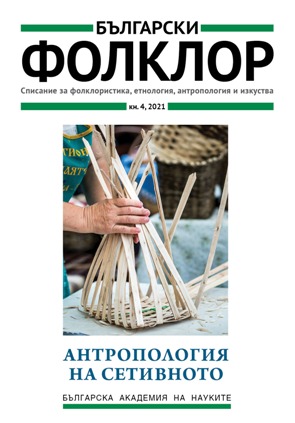
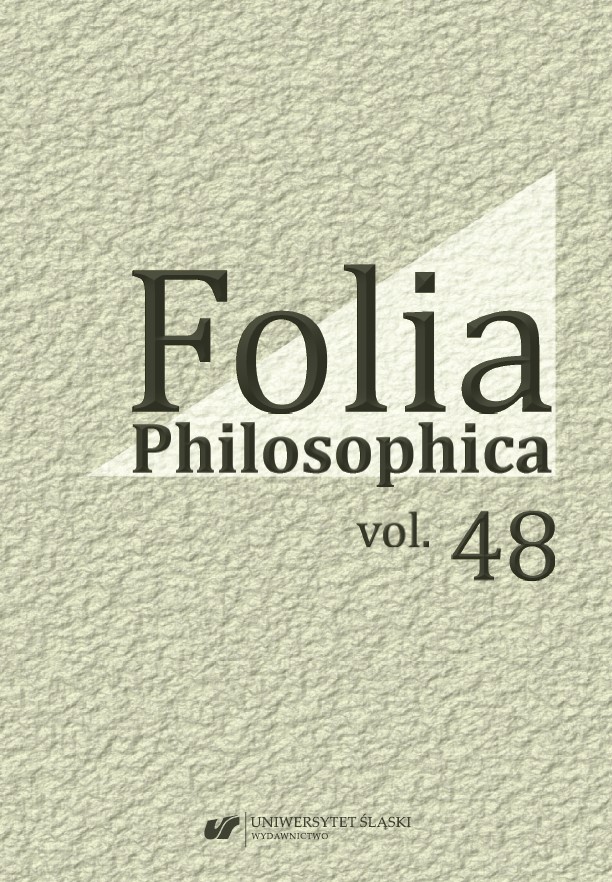
The article presents one of the components of the intellectual legacy of Polish positivism, a philosophical position which proposed a new attitude towards ethical issues. Its representatives put forward the notion of scientific ethics, reducing moral philosophy to it. They strongly emphasized their critical attitude towards traditional ethics, for which there was no place in the positivist model of science, and proposed a distinction between theoretical and practical ethics. Their project was motivated by an ambition to make ethics into jurisprudence, a discipline whose accuracy would make it similar to other sciences. Their efforts were consistently motivated by the idea of making ethics into an empirical and applied science. This scientific ethics would fulfill the important task of forming a set of moral requirements, which, by referring to moral knowledge (“ethology”), would have a chance of influencing the conduct of individuals and society. The new ethics was expected to contribute to the change in social morality and thus greatly support moral progress, an issue which was hotly debated. All positivists subscribed to the idea of progress, including that of morality; however, some differences can be discerned in how they defined progress. Some defined it in realistic categories, while others focused on optimistic visions of the future. Among the first advocates of scientific ethics and of the idea of moral progress, differences notwithstanding, were Aleksander Świętochowski, Julian Ochorowicz, Feliks Bogacki, Władysław Kozłowski, and Bolesław Prus. The article gives an overview of some of their views.
More...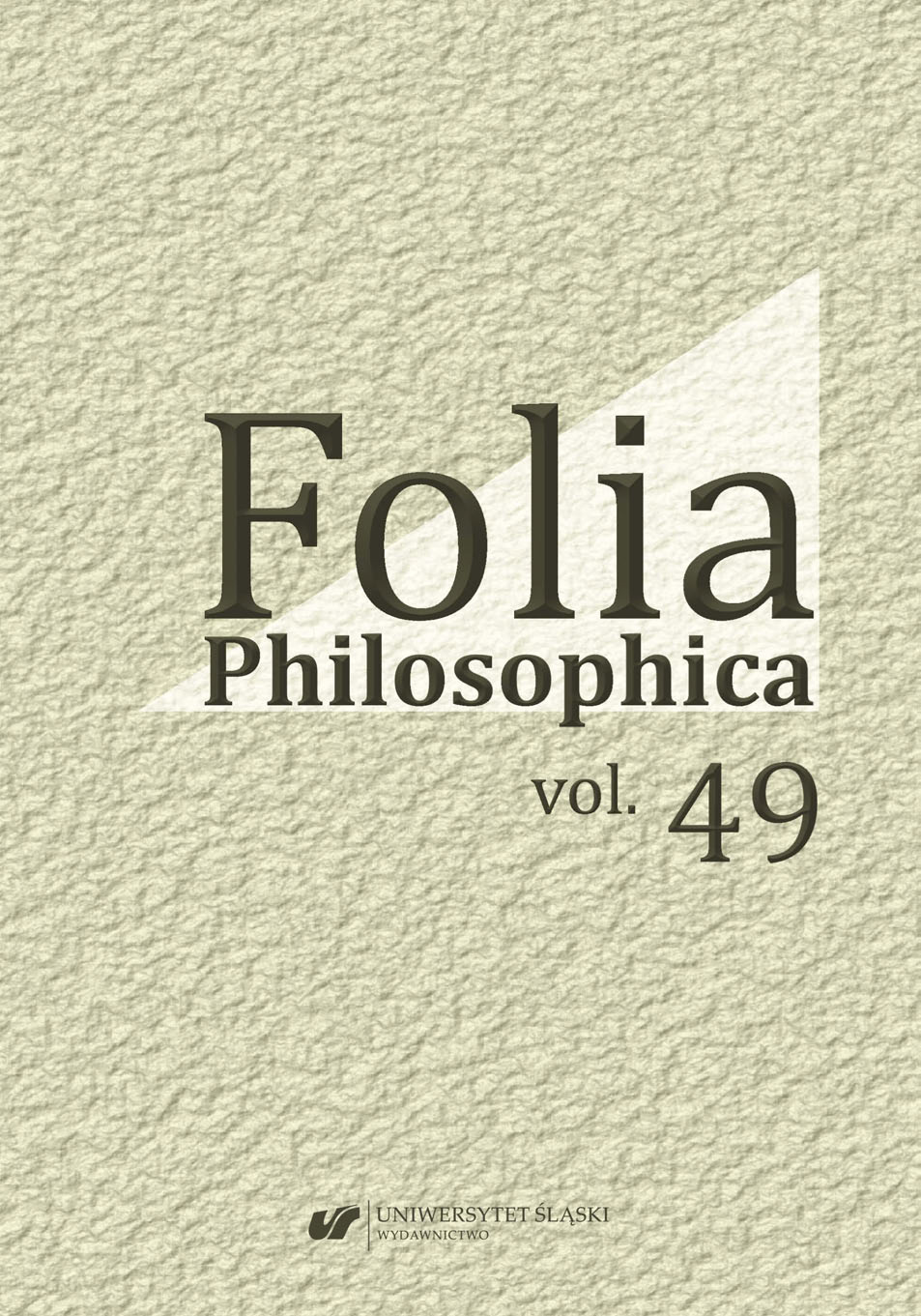
This article aims to present a detailed analysis of the “Christian natural philosophy” elaborated by the German humanist philosopher and theologian Otto Casmann (1562–1607) in his various works. To this end, Casmann’s general idea of philosophia Christiana is discussed and critically evaluated. Regarding natural philosophy, or physics, attention is paid mainly to topics such as cosmogony and cosmology, which Casmann promised to have developed biblically and independently of the pagan (namely Aristotelian) tradition. However, when Casmann’s natural philosophy is analyzed in detail, his resolute emphasis on the literal reading of the Bible, the cornerstone of his entire concept, turns out to be problematic. Similarly, despite his resolutions, his natural-philosophical views are, to a considerable extent, still dependent on Aristotelian terms and concepts.
More...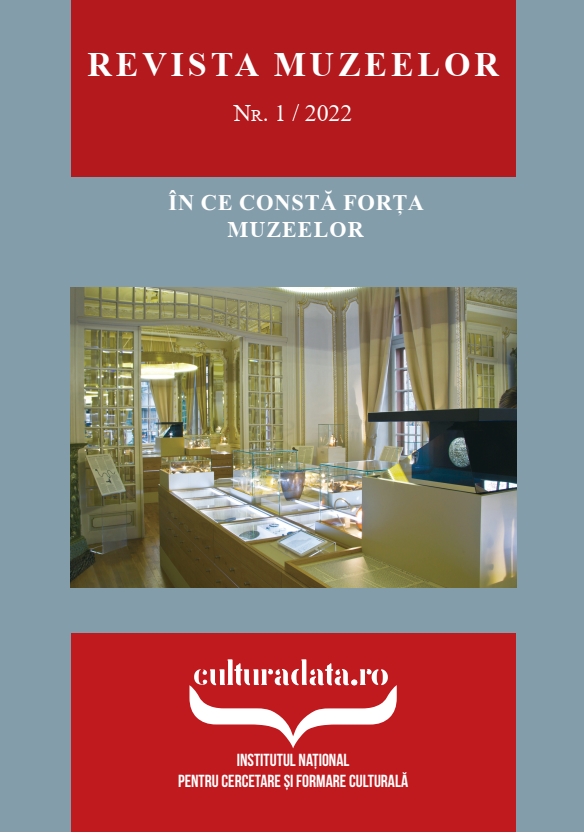
What is the strength of the museum? The answer can be summarized briefly by listing two strong and distinctive points that define this institution in its essence. The museum is a device that generates time and, on the other hand, operates with the authentic object, giving the possibility of a direct interaction with the reality of visitors. Even in case of considerable intervention by contextualization of the museum object, the visitor has the possibility to establish a direct, present and sufficiently intimate connection with at least a fraction belonging to the object itself, which intervenes in the knowledge of the truth. In contrast stand replicas or copies of objects with which we are continuously bombarded in a time of constant processing and manipulation of reality through computers and their software. In this paper I argue for the two fundamental features of the museum and I try to prove that they have an indispensable role from a cultural point of view, which cannot be replaced by other media, considered by some, competitors.
More...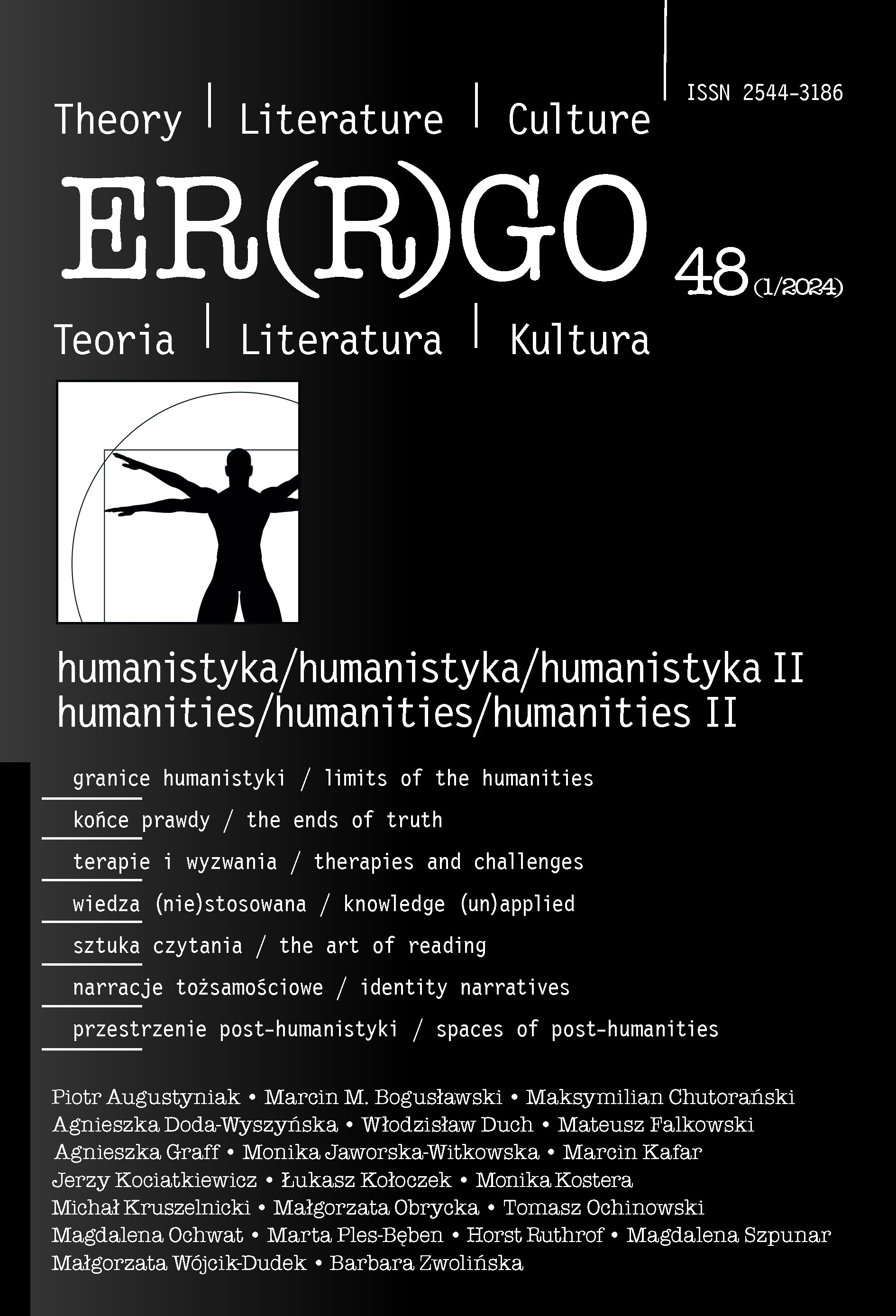
The aim of the article is to analyze Gaston Bachelard’s psychoanalysis of the scientific mind in its practical dimension. Inspired by Sigmund Freud’s psychoanalysis, Bachelard deployed his own method to analyze the scientific unconscious, populated by epistemological obstacles inhibiting scientific cognition. As this article seeks to demonstrate, Bachelard’s psychoanalysis aims to purify, and thereby streamline the cognitive mind on two levels: individual and historical. Bachelard’s methodological experiment, transferring psychoanalysis into the spheres of the theory of knowledge and philosophy of science, turns out to be, at the same time, an instance of the architecture of a scientific mind, a polemic with cognitive realism and empiricism, and a postulate of analytical therapy in the field of cognition.
More...
The complexity of cultures in the modern world is beyond human comprehension. Cognitive sciences cast doubts on the traditional explanations based on mental models. The core subjects in the humanities may lose their importance. The humanities have to adapt to the digital age. New, interdisciplinary branches of the humanities emerge. Instant access to information will be replaced by instant access to knowledge. Understanding the cognitive limitations of humans and the opportunities opened by the development of artificial intelligence and interdisciplinary research necessary to address global challenges is the key to the revitalization of the humanities. Artificial intelligence will radically change the humanities, from art to political sciences and philosophy, making these disciplines attractive to students and enabling them to surpass current limitations. The main goal of this article is to alert people working on different branches of humanities that a new wave of very advanced technology is quickly coming, enhancing human intellect in an unprecedented way.
More...
The paper argues that the standard pro- and anti-Kantian reception of the Critique of Judgment has largely misconstrued the relationship between Part I and Part II of the book by failing to recognize that the former is primarily providing a series of stepping-stones laying the groundwork for the elaboration of reflective-teleological reasoning in Part II. Instead of its dominant reading as foremost relevant to the study of biological nature, the paper distils from the reflective-teleological judgment a universal principle by which we typically interpret any complex set of particulars. As such, the reflective-teleological judgment of 1790 is shown to have done away with interpretive truth, replaced by Kant with the more modest claim of intelligibility.
More...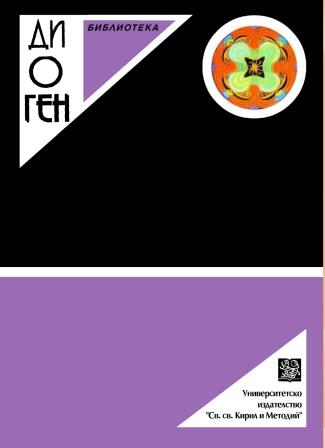
This paper tries to develop a tenable philosophical idea of Ubuntu as an endogenous construct for African socioeconomic and political development. The search for an African endogenous paradigm for sociopolitical and economic development is urgent given the real consequences of some dominant paradigms of alienation, exploitation, and marginalization. These values have altered or affected African behaviour and thinking. This transformation of the human person has raised issues about agency and the values underlying same. So, a development paradigm or philosophy of development for Africa or even the world at large requires an ethical basis for human existence in economic, political, and social order. Generally, social order in most parts of Africa is beset by the problem of a negative dominant social paradigm (DSP) or core social values of hatred, intolerance, the abuse of human rights, dehumanization, exploitation, authoritarianism, poverty, and oppression. This often leads to tension, violent conflicts, and wars. So, to build a viable and stable endogenous paradigm for development in most African sociopolitical environments we attempt to use the main pillar of interconnectedness among human beings which is central to Ubuntu as a social system and value system to underscore some key moral and democratic values required for human liberation and transformation. The research question is: What concrete elements or values of Ubuntu can be useful as paradigms of an endogenous African development? Specifically, our findings suggest that Ubuntu ethics is defined by a set of human values or qualitative correlates central among which are reciprocity, common good, peaceful relations, emphasis on human dignity and the value of human life as well as consensus, tolerance and mutual respect.
More...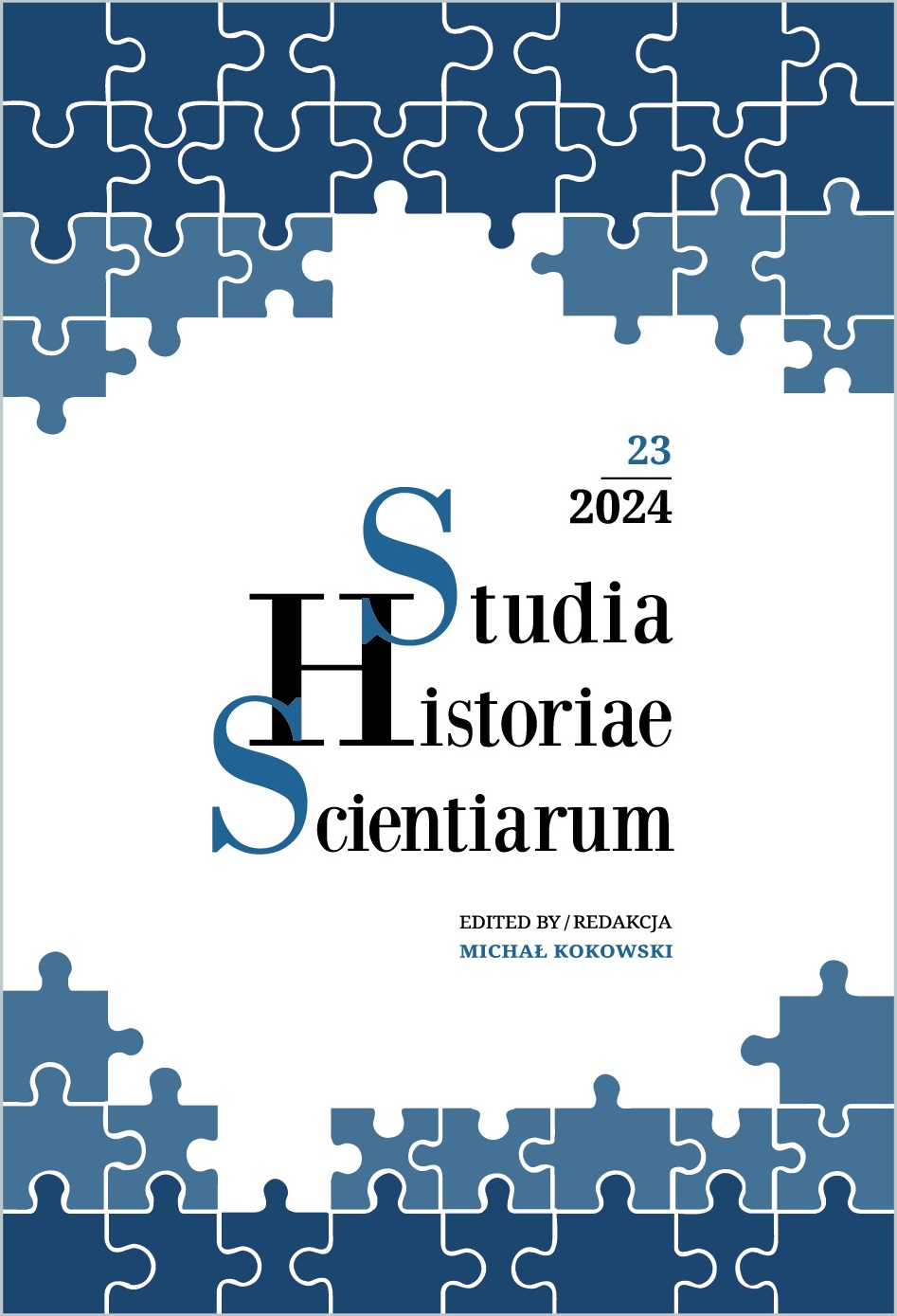
The article discusses the concept of science proposed by Andrzej Trzciński (1749–1823), a Krakow professor of physics during the Enlightenment era. In 1811, he published Uwagi na Rozprawę o krytyce Stanisława Kostki Potockiego [Remarks on Stanisław Kostka Potocki’s Treatise on Critique]. Typically, this text has been perceived by researchers as insignificant, malicious remarks directed at Potocki (1755–1821) and his dissertation.The aim of this article is to show that behind the arguments presented in Uwagi... lies a vision of science, as well as culture and art, distinct from Potocki’s.Firstly, the article introduces the Krakow scholar and explains why he remains relatively unknown. Then, based on an analysis of Uwagi... and comparisons with Potocki’s Critique, it indicates that Trzciński was an advocate of empiricism, a critic of classicism (advocated by Potocki), and a scholar who drew inspiration from sentimentalism and the views of J. J. Rousseau. True to Enlightenment ideals, Trzciński advocated research into Nature, believing that the natural sciences take precedence over other disciplines because they are useful (by facilitating life, improving the quality of life, and serving the common good). Fine arts and aesthetics, according to Trzciński, are reserved for the few and bring limited benefits to society, primarily providing pleasure and entertainment.Moreover, the article also raises the issue of Polish scientific and academic language.
More...